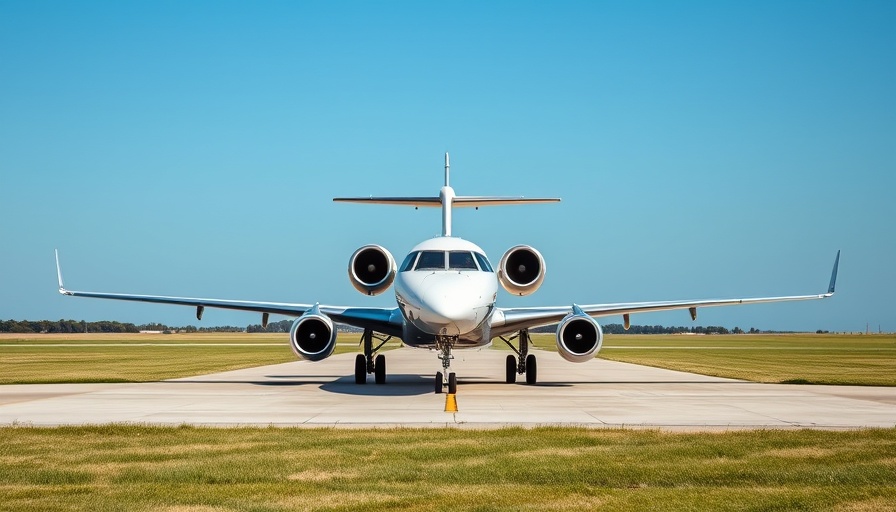
What Delta's Warning Means for the Aviation Industry
Delta Air Lines recently raised alarms regarding the potential imposition of new tariffs on commercial aircraft and parts due to a national security investigation surrounding imports. The airline warns that such tariffs could significantly disrupt the aviation industry, leading to higher costs for consumers and manufacturers alike. With the potential for these tariffs being made public by President Trump, the industry is on edge as stakeholders consider the broader implications.
Social Implications of Tariff Regulations
As tariffs affect not only manufacturers but also consumers, Delta's stance illustrates the complexities of trade regulations. If tariffs are enacted, airlines may face increased operational costs, potentially leading to higher airline ticket prices and impacts on travel accessibility. This could particularly affect small regional airlines, disrupting local economies reliant on aviation for tourism and business.
The Role of National Security in Trade
National security implications in trade have become increasingly relevant in the world of global commerce. While the intent behind heightened scrutiny is to protect domestic industries, it can inadvertently stifle competition and harm consumer choice. Delta's warning highlights the tension between enhancing national security and promoting free trade, an ongoing debate that touches on consumer rights and economic stability.
Future Trends in Aviation Tariffs
Potential tariffs on aviation imports could set a precedent for future trade policies, affecting how companies navigate international relations. Stakeholders may need to adapt to an environment where securing parts becomes increasingly challenging due to tariffs. Several experts predict a trend toward localized manufacturing of aircraft parts as companies seek to mitigate risks associated with tariffs, which could alter the global supply chain landscape.
Consumer Perspectives on Tariff Risks
Consumers may feel the immediate impact of proposed tariffs through rising prices for flights and air travel-related services. As Delta navigates this uncertainty, its ability to communicate effectively with customers will be crucial. Clear messaging about how potential tariffs could affect ticket pricing and service availability may help manage consumer expectations.
Expert Insights
According to industry experts, the imposition of tariffs could obstruct recovery efforts made by the aviation sector post-pandemic. With airlines striving to regain their footing amid changing travel norms, Delta's warning serves as a reminder that policy decisions made in high offices can have cascading effects throughout the economy.
Call to Action: Stay Informed About Tariff Developments
As developments unfold regarding tariffs on commercial aircraft and parts, it's essential for stakeholders—whether consumers or professionals in the aviation industry—to stay informed. Keeping a close watch on government announcements and industry responses will be fundamental in navigating the future of air travel and trade. Consider subscribing to financial newsletters or following local news for the latest updates. Understanding the implications of these tariffs can empower you to make informed decisions that affect your travel plans and financial considerations.
 Add Row
Add Row  Add
Add 


Write A Comment